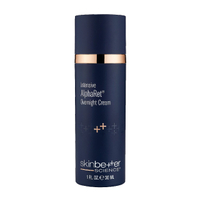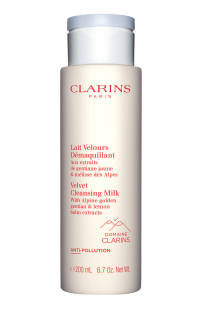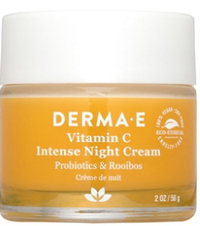Skincare for dry skin: get smooth, supple, well-moisturized skin with the right care and products
Learn expert tips on skincare for dry skin and why you should definitely believe the hype about hyaluronic acid


Do you remember that iconic 1980s skincare commercial that showed a woman spelling out the word “dry” on her hand—and have that chalky, three-letter image be your cautionary tale from there on out? You’re not alone, and although certainly not the most accurate representation, that 30-second spot definitely did what it came to do: get you to want to learn more about the correct skincare for dry skin, and crucially, know how to prevent getting dry skin altogether by having a moisturizing product literally on hand.
Haunting skin doodles aside, dry skin doesn’t start and end with that glaringly obvious symptom. This common skin condition is actually characterized by a lack of water or moisture in the epidermis, or skin’s superficial layer (hence its interchangeability with the term "dehydrated skin"), so more everyday signs can include everything from regular dehydration and tightness to perhaps some flaking, cracking, and roughness in texture, to more visible fine lines to even itching and stinging.
Dr. Erin Kil, MD, a dermatologist at Manhattan’s Tribeca Skin Center, provides further context on what exactly makes dry skin, well, dry. “The outer skin layer, also known as the stratum corneum, has lipids between the skin cells. These lipids include ceramides, cholesterol, and free fatty acids. The variation of lipid composition can determine how dry the skin is. A decrease of the lipid components can not only dry out the skin but also disrupt the skin's barrier function and consequently inflame the skin.”
So before you camouflage any texture issues with the best foundation money can buy, realize that makeup, even new innovations with formulas touted as "hydrating," can only go so far (you wash them off after the day is done, after all). Rather, developing a solid dry skin regimen that focuses on a proper step-by-step layering of gentle, moisturizing products to not only rehydrate but also keep inflammation at bay is paramount to a complexion that is healthy, well-balanced, and glowing with health.
Skincare for dry skin
What causes dry skin?
Is dry skin something we are born with, or is it acquired? A little bit of both, since though there are genetic factors to consider, many of its symptoms can also occur down the line and flare-up in drier seasons, like during the winter. “Normal skin can become drier in climates with low humidity, as well as with caffeine and alcohol intake, as they are diuretics,” Dr. Kil explains. “Certain medications can also dry out the skin, including statins.”
And age? “A decrease in estrogen during menopause and low thyroid levels can also dry out the skin. Running a humidifier overnight, especially when an air conditioner or heater is blowing dry air at the same time, can help hydrate the skin.”
The best skincare products for dry skin
And yes, there is truth to all that hyaluronic and ceramide buzz. Dr. Kil stresses the importance of these for optimum skin moisturization: “Studies have also shown hyaluronic acid and glycosaminoglycans help hydrate and restore the skin barrier. Products that work best with dry skin are those that help maintain the lipid barrier, including ceramides, hyaluronic acid, and glycosaminoglycans.”
Sign up to our free daily email for the latest royal and entertainment news, interesting opinion, expert advice on styling and beauty trends, and no-nonsense guides to the health and wellness questions you want answered.
The Ordinary Hyaluronic Acid 2% + B5
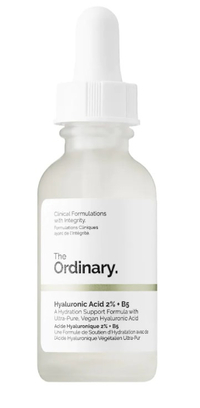
For a no-nonsense intro into that HA life, we like the super-straightforward formulation—not to mention the supple, glowing aftermath—we get from The Ordinary Hyaluronic Acid 2% + B5, which imparts visible results without any silicones or added fragrance.
Products to avoid, plus how to use retinols
Are you an exfoliation addict or someone who loves scented skincare? Dr. Kil advises maybe stepping back on being too scrub-happy (or at least tapering off to something less frequent) and laying off the fragrance. “Individuals with dry skin should avoid products that may disrupt the skin's barrier, such as benzoyl peroxide and exfoliators. Furthermore, fragranced products and products with alcohol can irritate the skin.”
AlphaRet Overnight Cream
“Topical retinoids can be used with caution, as they can irritate dry skin," Dr. Kil advises. “They can be used every other night or in combination with a moisturizer to prevent irritation. A less drying topical retinoid is AlphaRet Overnight Cream from Skin Better Science.”
The best skincare routine for dry skin
A step-by-step skincare guide
A simple skincare routine for dry skin starts with using a gentle, non-abrasive cleanser, Dr. Kil explains. This is best followed by a serum, moisturizer, and a sunscreen, preferably with zinc oxide.
Step 1: Use a gentle cleanser
CeraVe Hydrating Facial Cleanser
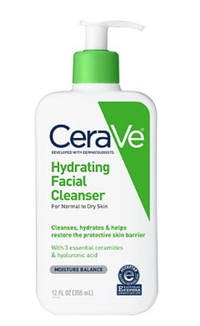
Like many dermatologists and skin experts, Dr. Kil favors the gentle cleansing properties found in CeraVe Hydrating Facial Cleanser—with their famous formula of hyaluronic acid plus three ceramides, this crowd-pleaser is extremely effective in moisturizing, protecting, and restoring the skin's barrier.
Clarins Velvet Cleansing Milk
Sponsored
This milky cleanser is gentle on skin thanks to a blend of organic yellow gentian & organic lemon balm which work to cleanse while protecting the natural microbiota of the skin. It's perfect to use as the second stage in a double cleansing routine as it's hardworking enough to get rid of any makeup residue but won't strip the skin of important moisture and will leave it feeling healthy and nourished.
Step 2: Apply a serum
Senté Dermal Repair Cream

Ideal for dry and also red/sensitized skin, this premium cream has Heparan Sulfate Analog (HSA) to effectively hydrate and renew, alongside calming green tea extract and sodium hyaluronate for a three-pronged approach to enhancing skin tone while reducing sensitivities.
Step 3: Follow up with a moisturizer
Derma E Hydrating Day Cream
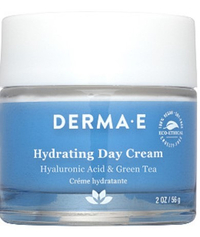
Hyaluronic acid mixes with a 100% vegan all-natural formula to deliver a dewy, rehydrated glow, making it a fundamental addition to skincare for dry skin. We love the youthful plumping effect it imparts with continued use.
Derma E Vitamin C Intense Night Cream
Some studies suggest that a topical application of vitamin C can help prevent water loss on the epidermis. The stabilized formula in this cream addresses uneven skin tone and other signs of aging and promotes collagen health and a more radiant texture—all while you get your precious zzz's.
Step 4: Top with a zinc oxide sunscreen
EltaMD UV Facial Broad Spectrum SPF 30+ Moisturizing Facial Sunscreen
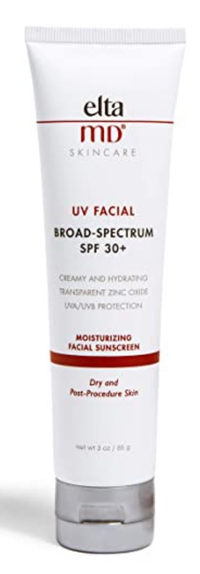
Zinc oxide is a highly effective ingredient in sunscreen, as it blocks both UVA and UVB rays without causing irritation. This innovative formulation includes hyaluronic acid for an extra boost of hydration, particularly after a facial treatment, when gentle sun protection is imperative. A creamy sunscreen such as this formula, which is best for dry skin, is probably best worn on light makeup days; otherwise, pick up their oil-free or sport formula, which, bonus, offers an even higher level of protection.
woman&home thanks Dr. Erin Kil, MD of Tribeca Skin Center for her time and expertise.
A lifelong creative writer and beautyphile, Eunice Lucero-Lee graduated from De La Salle University in 2002 and was hired a year later to front all beauty coverage for Pink Magazine. A beauty, astrology, and pop culture obsessive and insider for over 18 years, Eunice is an internationally published editor (and now certified astrologer) whose work has been featured in publications such as Cosmopolitan, Esquire, and The Numinous, among many others.
